My camaraderie with Nepal began during my school days in Missamari, Assam, much like most of my other ‘language-group’ relationships. Staying in an army cantonment area has been a boon of sorts, because in terms of being exposed to a mixed culture, nothing can match an army-school experience.
My math’s teacher, I still remember, was Mr. Limbu, from somewhere in East of Nepal. I hated math, but liked him a lot.
Some of my best childhood friends were Nepali speaking.
And then, when I was in Business Standard, I was fortunate to work under eminent journalist Bharat Bhushan for a year or so. Besides modeling my beard on him, I also started loving and respecting his passion for the nationalist movement in Nepal, which he covered on a regular basis. With his support, I directed a film on Bishweshwar Prasad Koirala, a much respected political leader of Nepali Congress, revered across party lines.
That was when I visited Nepal for the first time, in 2001.
That was a unique experience, but this post is not about that.
This is about my dear friend Arun Deo Joshi, whom I met while working in Nepal One, a Nepali Language News and Current Affairs channel based out of Delhi – just after my stint with Business Standard.
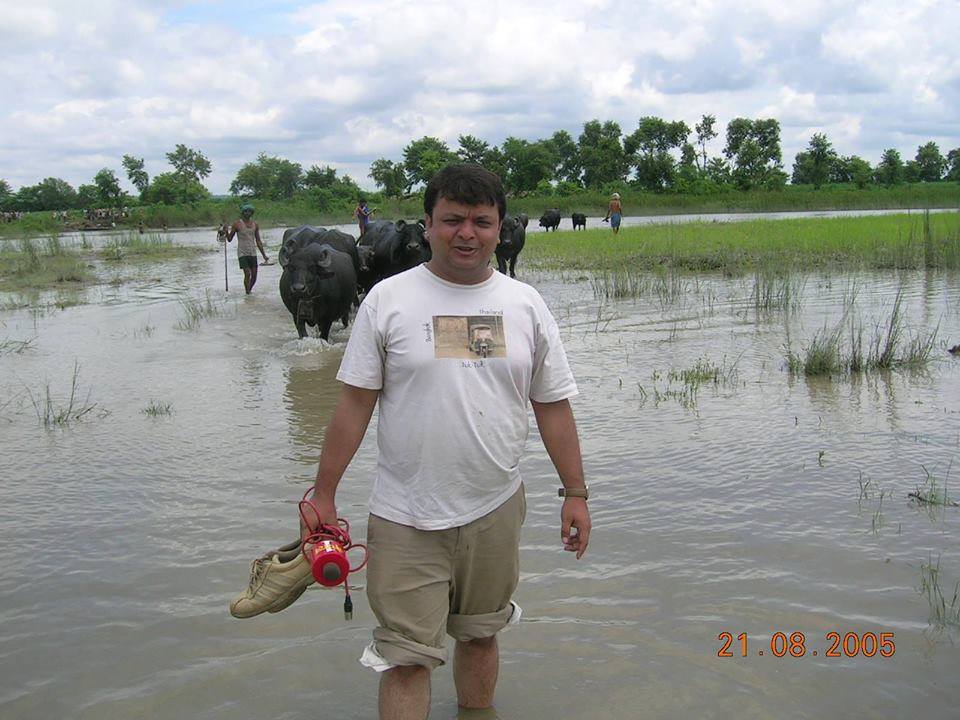
I was a story and show-producer there, and Arun one of the key News Anchors.
At the turn of the millennium, I worked in that ‘Nalini Singh’ owned channel for close to two years. That was a stint dotted with regular travels to Nepal, building long lasting bonds with the nation. But yes, of all my colleagues there, the person with whom I really developed a long term relationship, even after Nepal One, has been Arun.
This entire intro was to say I have never felt like an alien in Nepal. Most commoners there have a deep-rooted distrust for ‘Indians’, even hate them for their ‘big-brotherly’ attitude – but I have never faced that.
Arun stuck to News, while I moved on. Eventually, he became chief-news editor to a few Nepali News channels, dropping jobs almost like snake-skins. He also started making films, which he continued to send to me.
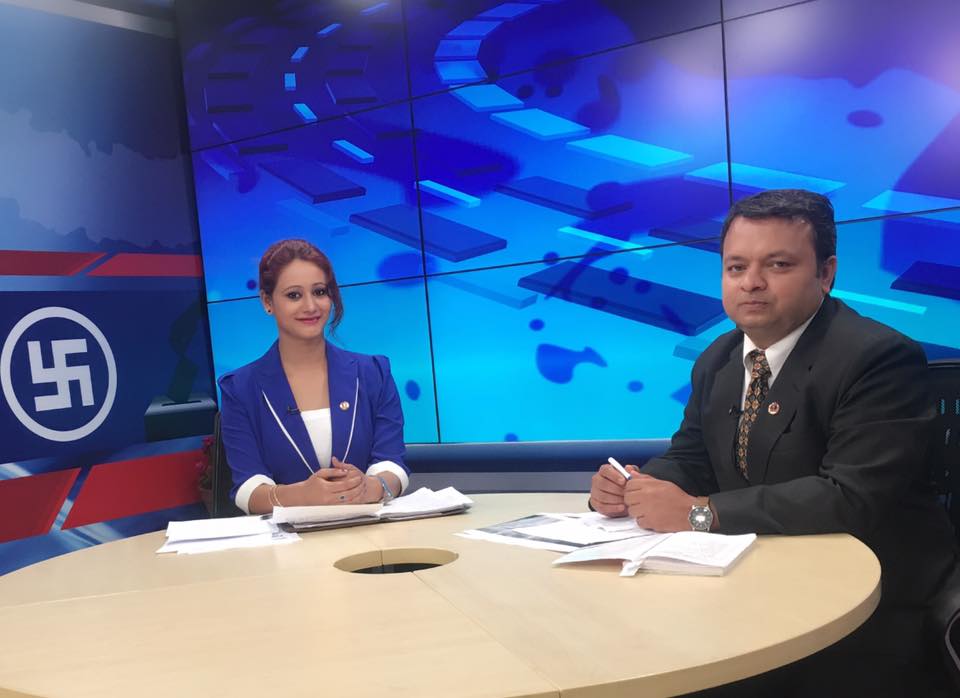
In a nutshell, he remained as unpredictable as one could ever be.
Both of us being non-party left-inclined misfits, the feeling that we are like-minded have further consolidated over the years. He sometimes calls me comrade Ranaji (my close friends and family call me Rana, which is my nick-name), and always helps if me or my friends need any support in Nepal.
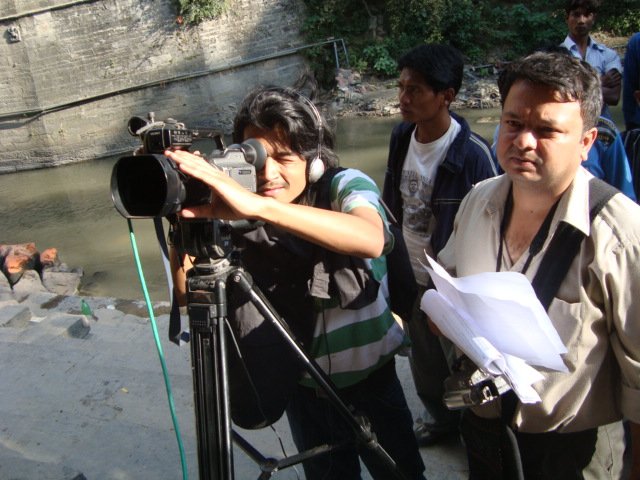
This was his first film, in 2008.
My friend Arun is now on the verge of directing his debut feature film ‘Hori’ – which has a unique story-line. The film underscores the decades old Maoist-insurgency in Nepal, that was pitched directly against the Royal Army.
‘Hori’ is about collusion and collision of ideals – a situational tragedy, one might say. Can’t say much about it as of now. All I can say that it will be a film worth waiting for – for like minded friends of mine.
I had been helping him out on the writing of the film, in whatever little ways I can, since the topic interests me a lot. Even while doing that, I wondered, why not ask Arun about his own origin story.
All these years, I have never asked him that.
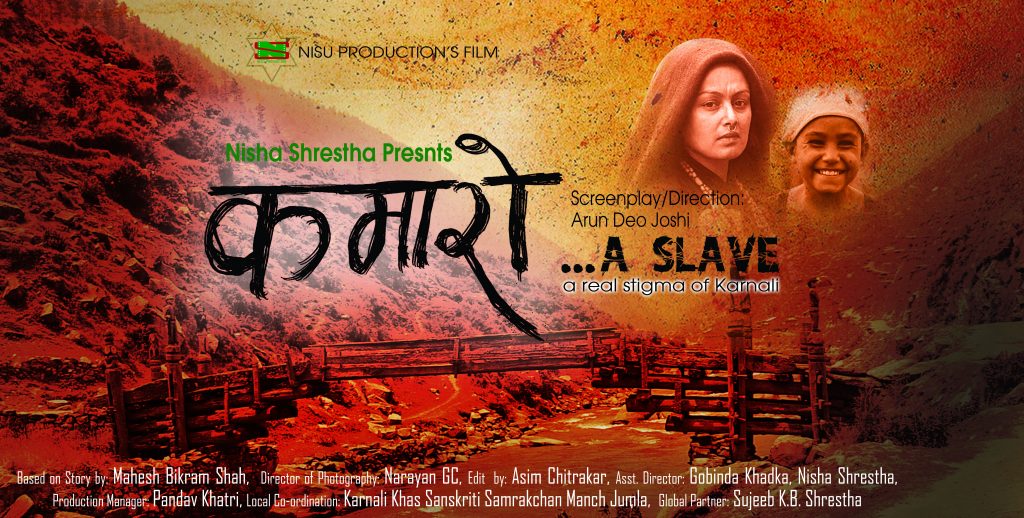
I loved Arun’s short film ‘Kamaro’ a lot.
The film is a period drama on a traditional form of ‘slavery’, which includes an undertone of ‘sex-slavery’ as well, as part of the package.
They way the characters took the ‘situation’ as destiny that cannot be reversed really shocked me. But yes, I am no more the sturdy protestor that I used to be, and now understand the value of depicting history as it was – hopefully with the intention of preventing it from happening again.
Every story can’t be positive; that’s untruthful and politically motivated storytelling. We know where that can lead us, don’t we?
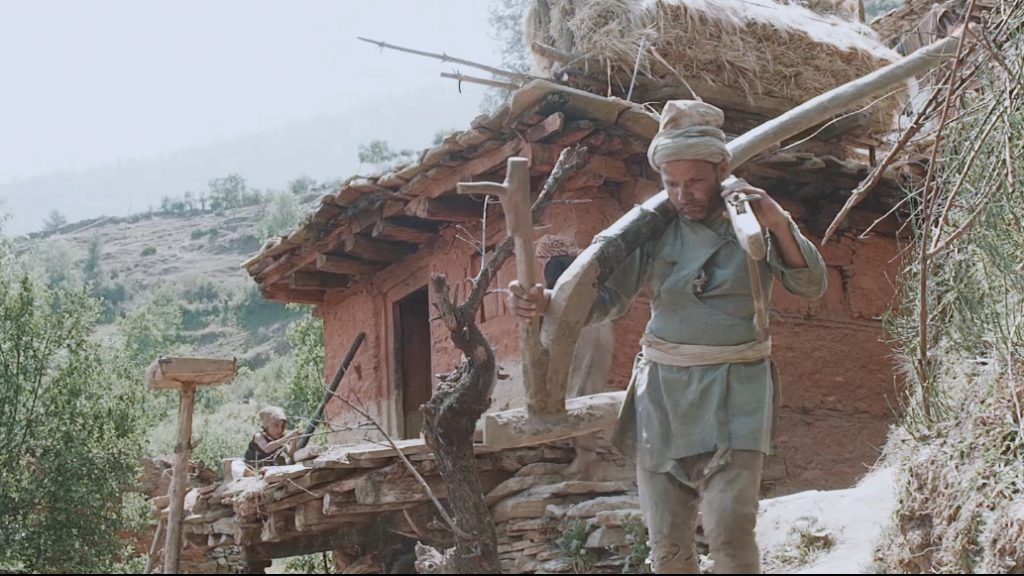
The Nepal where Arun spent his early adulthood was a country torn apart by civil war. In a way, he grew with the war, experiencing its various manifestations. Despite the fact that he was from a relatively well-to-do urban household – war and the revolution before it touched every life in the kingdom – some way or the other.
It was natural for him to make the documentary, ‘Tears of War’.
I remember him talking about the idea way back in 2003-04 – the subject was quite personal to him even then. But yes, I didn’t realize then that he would have access to so much of archive footage of the Maoists – training shots, field surveillance, firing sequences and all.
For Arun, I felt, ‘Tears of War’ was a very personal political statement; a form of disillusionment with which I can connect.
Gives a fair idea of the content of the film.
The years of civil war were detrimental to the mainstream Nepali film industry as well. Prior to the beginning of the war, the industry had reached a stage where over 140 films were made in three years – post 1990, when democracy was restored. The market expanded, many private players entered, distribution developed and started stabilizing, the number of cinema halls increased to over 300 – and the industry started hoping that they will soon displace the ‘Hindi’ films, which still dominated the market.
The beginning of the civil war stalled and stunted this growth.
Suddenly, there was a void.
That was the time when Arun was in his 20’s – opening up to the world. He witnessed the rapid rise and fall first hand – which must have impacted him, though he was in India then, studying. From then till the time we met, in 2003, he had already settled down with himself and his ideas.
I thought it would be interesting to know from him his top all-time favorites – in terms of Nepali cinema. The classical ones he had already mentioned – so what were his top choices from the later part of his life. I asked him – what would he recommend to me and my viewers, as representative Nepali Cinema of his time.

The film industry in Nepal has benefited from Indian collaborations; more so because of our open border like scenario, with easy and effortless access to each other, and friendly relationships for centuries.
The path-breaking Nepali film, ‘Maaitighar’ (1966) – considered to be the first privately produced film in Nepal, had a huge Indian contribution in its making. Eminent Nepali origin Indian actress Mala Sinha played the lead role; key cameos included Sunil Dutt and Rajendra Nath; music was scored by Jaidev and singers included the Mangeshkar sisters (three of them) and Manna Dey.
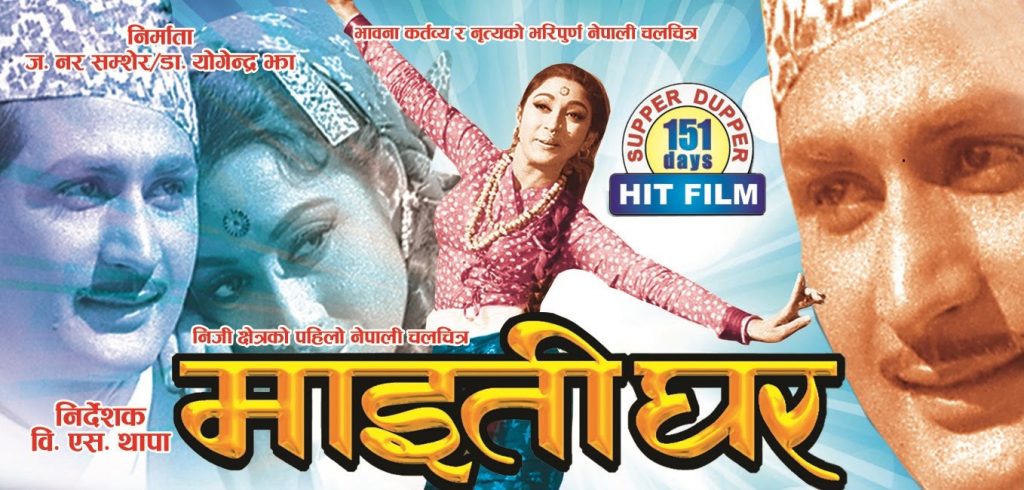
But that was ancient history of sorts; things have changed; we too.
Arun, however, believes that India and Nepal can both benefit through film-collaborations – even in the present scenario.
Arun is at the pre-production phase of his first feature length film ‘HORI’.
The story-line has been in his head for quite some time. But it started taking a final shape in LIM (Less is More), European film development lab, in 2018. 16 films from around the world were selected at LIM; of them, Hori was the only South Asian film.
Considering that the story has been hovering around Arun’s head for over a decade now, and he has most of the sequences already neatly planned out – I don’t really know how much help my contribution would be to this project.
But yes, I will definitely give it an honest effort. Let’s see how it goes.
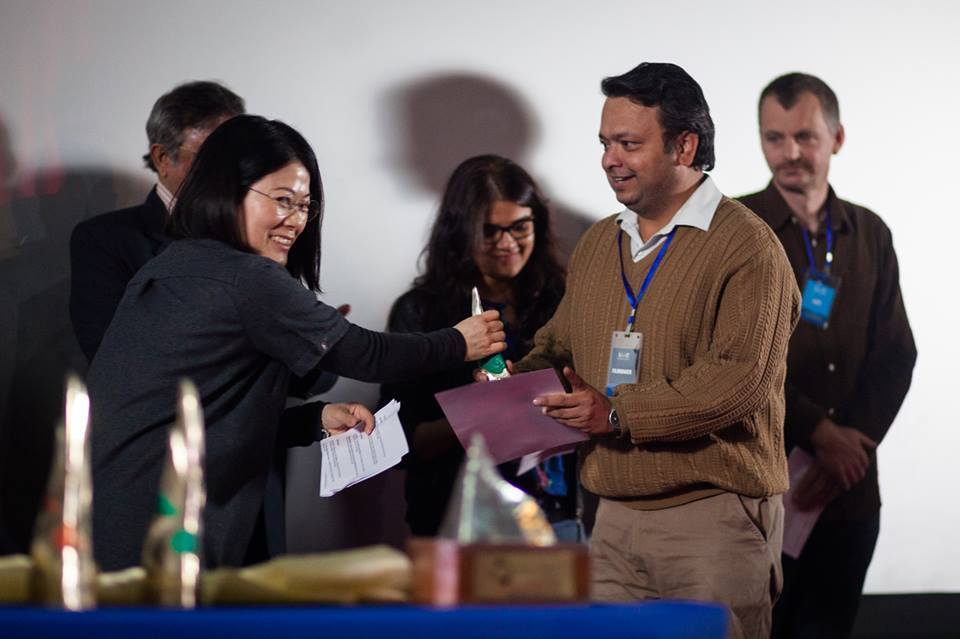

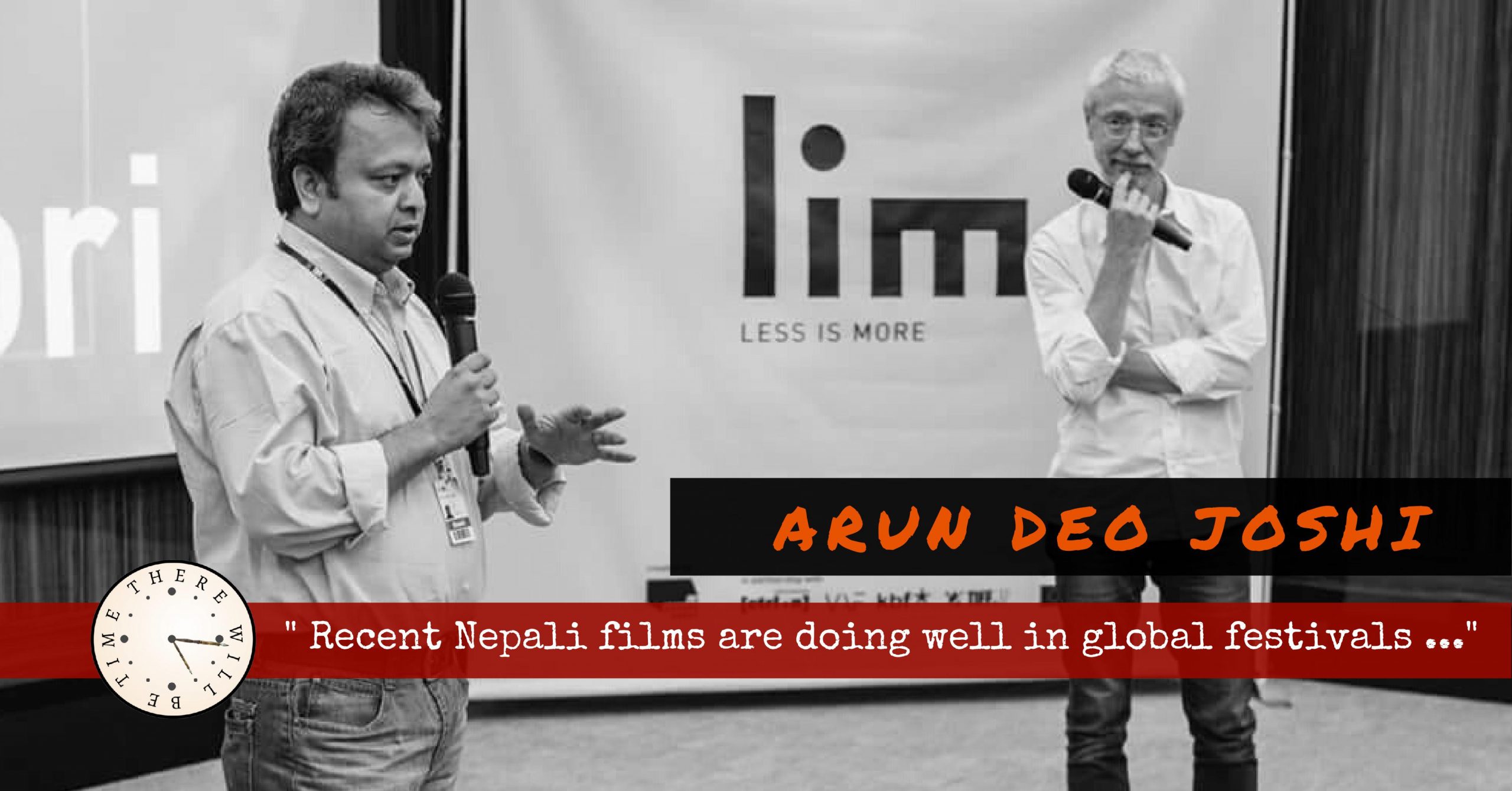
A nice, unknown niche opened for me… Like the easy, and engaging narrative too…
Interesting read. Liked the style too.
Thanks Nishi.
A great write up Rana. Liked all 3 – the subject , the narrative and with my inherent love for Nepal I enjoyed this to the brim. Looking for some more write ups soon.
However , felt that in the blog there is a reference to you by Arun as Ranaji. Suggest that you make it clear in case a reader is not conversant with your nick name. Any way , your call ….
I agree… putting that in, since most of my readers will not know me as Rana.
An engrossing read indeed. Liked both the subject and it’s treatment thereof. Also since Nepal is a country that I love and had been in out of Nepal during the troubled times being referre to here I may be got a lill more involved.
Looking for the next write up.
Had no idea about Nepali films. Your easy
narrative style has sparked my interest and I intend to see your friend’s film.
Yes. I intend so too. Let’s see how much time it takes.
Yes, and we intend to make it. Let’s see.